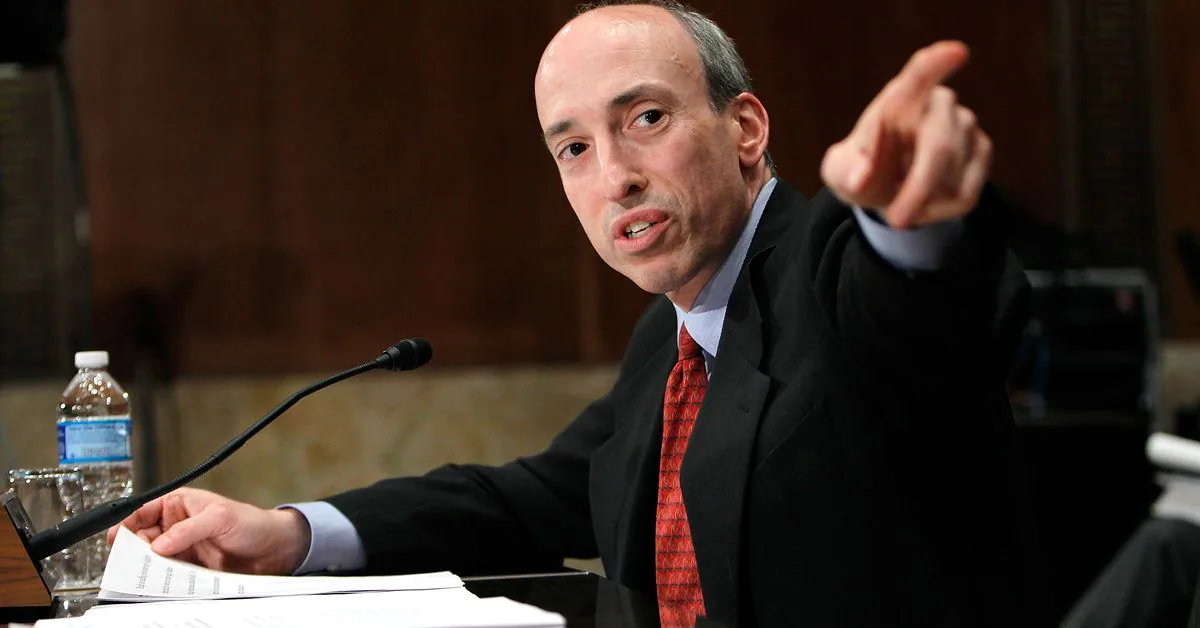Bitcoin developers spark a wave of controversy over the disabling of inscriptions, a multi-party game of interests.
Bitcoin Developers Ignite Controversy by Disabling Sign-Ups A Multi-Party Game of InterestsAuthor: Nancy, LianGuaiNews
The current hot Ordinals ecosystem was poured with a bucket of “cold water”. On December 6th, Luke Dashjr, a core developer of Bitcoin, pointed out a vulnerability in the script and hoped to have it finally fixed in the V27 version next year. So, what is the likelihood of Bitcoin Core upgrading to disable the script? Does Ordinals still have room to survive?
Proposal to disable the script next year, “script chain” as a viable solution
“The script is utilizing a vulnerability in the Bitcoin Core client to send spam messages to the blockchain. Since 2013, Bitcoin Core has allowed users to set an additional data size limit when relaying or mining transactions. The script bypasses this limit by obfuscating its data as program code. This vulnerability was recently fixed in Bitcoin Knots V25.1. Due to significant disruptions to my workflow at the end of last year (V24 was completely skipped), the fix took longer than usual. In the upcoming V26 version, Bitcoin Core still has the vulnerability. I can only hope it will be finally fixed before the V27 version next year.” Bitcoin core developer Luke Dashjr expressed in a post on X platform today.
According to @Ben077, a contributor to Taproot Assets, Luke Dashjr set two main parameter limits for filtering so-called fraudulent Bitcoin transactions in knots; datacarriersize mainly limits the size of data carried by op-return, i.e. those that write data in the output part of UTXO; maxscriptsize limits based on the script of the script, and its data is carved in the witness field of UTXO. If Luke Dashjr’s idea really enters the core, the default limit values for these two parameters may result in only taprootassets and RGB, which occupy the smallest on-chain footprint, remaining in the Bitcoin ecosystem.
- ETH rebounds to $2200, how do cryptocurrency practitioners view the future market trend?
- In-Depth Analysis How Tether is Used to Evade US Sanctions?
- The Funniest Voice in Crypto Twitter: Gwart’s Hilarious Truth-Telling
According to Luke Dashjr, after this vulnerability is fixed, it means that Ordinals and BRC-20 will no longer exist. However, some netizens have suggested, “If the script wants to continue, a more environmentally friendly method is to create a script chain, similar to Ethereum’s Layer2, which only needs to periodically submit hash values to Bitcoin to operate.” In response, Luke Dashjr replied, “Yes, that would work. And it wouldn’t even need to have a block size limit, each node could set its own limit (or none at all).”
Luke Dashjr is one of the early core developers of Bitcoin and has been dedicated to Bitcoin development since 2011. As a representative opponent of the Ordinals NFT protocol, Luke Dashjr has always firmly believed that the protocol is an “attack” on Bitcoin, opposing the minting of NFTs on Bitcoin, and even claiming to have developed a simple “spam filter” to allow miners to filter out scripts and prevent them from being forwarded through the Bitcoin network.
Recently, Ocean Pool, founded by Luke Dashjr and invested by Twitter founder Jack, caused controversy in the crypto community when it used multiple filtering strategies to filter out “spam email” in the form of scripts during block generation. Some people believe that filtering out spam data is a beneficial behavior, while others believe it to be a filtering censorship system.
Luke Dashjr’s opposition has also garnered a lot of support. For example, early Bitcoin adopter Samson Mow has previously stated that the speculation surrounding Ordinals and BRC-20 tokens is unsustainable and will disappear within a few months; essentially, it is directly paying miners exorbitant fees, which is not sustainable. Furthermore, in June of this year, Bitcoin developers were revealed to be discussing whether the Bitcoin code should be adjusted to curb Ordinals and BRC-20 token activity.
How does the community view this?
Luke Dashjr’s proposal does not mean it will ultimately be implemented. He himself does not have the authority over the Bitcoin code, and an upgrade would require miners to vote on it.
“Bitcoin is not Ethereum, developers do not have the final say. Code upgrades require miner votes, and if they oppose it, the upgrade won’t happen.” F2pool co-founder Fishyfishy expressed on social media that even if developers insist on an upgrade, they can fork on their own. But the possibility of a fork is very low considering the crucial juncture of the approval of the Bitcoin spot ETF.
Cryptocurrency researcher Haotian also stated that in Bitcoin v25.1, miners are given a switch to choose whether to include transactions that exceed the SIZE. But because miners benefit from it, no miner would choose to turn it off.
Founder of SlowMist, Cosmos, believes that “this viewpoint from Bitcoin Core developers is stimulating. If everything goes as he wishes, future versions of Bitcoin will fix what he considers vulnerabilities: Ordinals/Inscriptions are vulnerabilities of Bitcoin and a form of SLianGuaim attack. We have debated this from the beginning, and now it may be time to address them… But personally, I don’t think it’s necessary to fix this, because the impact brought by accidentally unleashing this Pandora’s box is not just a bunch of SLianGuaim, but also the vibrancy of the Bitcoin ecosystem, which is not solely based on Ordinals/Inscriptions. Of course, if this is fixed, compatibility solutions can better open up the Bitcoin ecosystem, but long-term pain is not as good as short-term pain.”
Miners and exchanges will be important players in the interest game
As mentioned earlier, behind the wave of inscription disabling, apart from Bitcoin developers, miners and exchanges are also important players in the interest game.
In fact, the popularity of Ordinals has led to a large number of Bitcoin inscriptions being created. According to Dune’s data, as of December 6th, the total amount of inscriptions created for Ordinals has exceeded 46.376 million coins, with a total transaction fee of 3,362.3 BTC (about $140 million). At the same time, the continuous increase in tokens such as ORDI has also brought about a frenzy of BRC-20 transactions. According to Dune’s data, as of December 6th, the total number of BRC-20 transactions approached 39.891 million, with a total transaction volume of 2,670.8 BTC.

The entire Bitcoin NFT ecosystem is constantly booming. According to CryptoSlam data, as of December 6th, the total amount of NFT sales on the Bitcoin network has exceeded 1.03 billion US dollars, with a total number of users exceeding 216,000. In the past month, Bitcoin has surpassed Ethereum to become the blockchain with the highest NFT sales volume.
Due to the surge in demand for Ordinals, gas fees on the Bitcoin chain remain high, and mining profits have greatly increased. Bitcoin mining pools and miners are making a fortune. According to BTC.com data, as of December 6th, the daily transaction fees of the entire Bitcoin network were about 236.6 BTC, an increase of about 33.8 times compared to the beginning of the year. According to Blockworks Research data, a record-breaking 8.34 million Ordinals-related transactions occurred in November alone, generating approximately $38.7 million in revenue for Bitcoin miners.

In addition to this, exchanges will also be important participants in this game. Taking the leading BRC20 token ORDI as an example, CoinGecko data shows that in the past 24 hours, the spot trading volume of ORDI on the entire network has exceeded 1.31 billion US dollars, surpassing its own market value. Binance and OKEx contributed more than 79.5% of the trading volume.
Faced with this battle of interests, although miners, exchanges, and even users do not have the authority to manage the Bitcoin core code, as important profit participants, they may not simply sit idly by.
We will continue to update Blocking; if you have any questions or suggestions, please contact us!
Was this article helpful?
93 out of 132 found this helpful
Related articles
- Revisiting and re-pledging How does EigenLayer initiate the profit flywheel?
- LianGuai Daily | Jito Labs discloses the distribution specifications of 100 million JTO airdrops; ORDI breaks through $50, reaching a new all-time high
- Jito officially announces the analysis of airdrop rules Who will receive blessings?
- Attacking its own exchange? Analyzing the SEC’s lawsuit against Kraken in the United States
- From DYDX to MAGIC, a review of self-built public chain projects that convert tokens into Gas Tokens.
- Sky is the Limit: An Artistic Rebellion in the Digital Frontier
- NFT Art and the Dance of Creation: An Artist’s Tale






